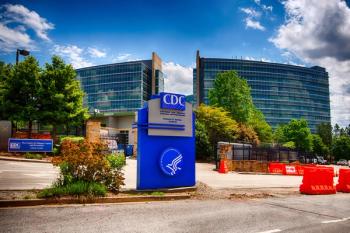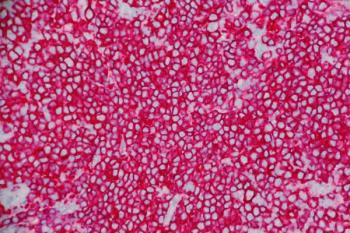
Experts discuss the need for improved clinical trials in myelofibrosis, focusing on disease modification, patient outcomes, and potential new therapies.

Experts discuss the need for improved clinical trials in myelofibrosis, focusing on disease modification, patient outcomes, and potential new therapies.

Explore the evolving role of pharmacists in managing EGFR-mutated non-small cell lung cancer and the future of resistance-directed therapies.

Reducing alcohol intake alongside GLP-1 therapy may significantly improve outcomes for patients with obesity or diabetes risk.

Ben Long, MD, and Weston Blakeslee, PhD, discuss how pharmacists can integrate automated SMS tools to reduce readmissions while minimizing workflow burden.

Explore how pneumococcal vaccine efficacy is measured, its real-world impact, and the importance of immunobridging for informed vaccination decisions.

On Chen, MD, and Tahmid Rahman, MD, explain the real-world safety, dosing advantages, and pharmacist-driven identification strategies for patients who may benefit from plozasiran therapy.

In this episode, the panel explains how VMAT2 inhibitors became the foundation of modern tardive dyskinesia treatment.

Healthcare professionals discuss effective management strategies for breakthrough bleeding, emphasizing updated protocols and patient education for optimal outcomes.

This episode outlines all treatment approaches available for tardive dyskinesia and how they are applied in practice.

Explore the evolving landscape of bleeding management with new rebalancing agents, emphasizing lower doses and effective treatment strategies.

Plozasiran offers a novel RNA-based mechanism to significantly reduce triglyceride levels in patients with familial chylomicronemia syndrome.

Ben Long, MD; and Weston Blakeslee, PhD, explain how personalized text messaging helps overcome common adherence barriers and keeps patients engaged without overwhelming them.

Heidi De Souza discusses strategies to enhance RSV vaccine uptake among older adults, emphasizing awareness, coadministration patterns, and public health efforts.

Discover how ENAMEL revolutionizes oral care with eco-friendly, waterless toothpaste tablets made from clean, natural ingredients.

Explore how real-world evidence shapes myelofibrosis treatment, focusing on biomarker utilization and safety profiles of JAK inhibitors.

Subcutaneous Amivantamab shows promise with reduced infusion reactions and improved patient convenience, potentially transforming treatment experiences.

Pharmacists play a crucial role in implementing novel therapies for non-small cell lung cancer, focusing on education, communication, and patient safety.

Explore the latest advancements in myelofibrosis treatments, including Fedratinib, Pacritinib, and Momelotinib, and their clinical impacts.

Ben Long, MD; and Weston Blakeslee, PhD, discuss how personalized text reminders significantly improve prescription adherence in patients with heart failure and the critical role pharmacists play in reinforcing engagement.

Jeffery A. Goad, PharmD, MPH, stresses that consistent, evidence-based communication from pharmacists and other health care professionals is essential to maintaining public trust and preventing declines in childhood vaccination.

Zahra Mahmoudjafari explains how the epcoritamab, rituximab, and lenalidomide regimen delivers durable responses in relapsed or refractory follicular lymphoma while expanding the pharmacist’s role in dosing coordination and toxicity management.

Explore essential strategies for effective breakthrough bleeding management, emphasizing early recognition and treatment to minimize long-term joint damage.

In this episode, the panel discusses how clinicians determine whether treatment for tardive dyskinesia is warranted once abnormal movements are identified.

In this episode, panelists identify early recognition of tardive dyskinesia as a significant unmet need and describe key opportunities to improve screening.

Explore effective prophylactic measures and individualized treatment options for managing hemophilia and preventing bleeding in patients.

Jeffery A. Goad, PharmD, MPH, explains how the shift toward shared clinical decision-making for pediatric vaccines may complicate counseling, reduce vaccine uptake, and increase public health risks.

Zahra Mahmoudjafari, PharmD, MBA, BCOP, FHOPA, explains how the epcoritamab, rituximab, and lenalidomide regimen delivers durable responses in relapsed or refractory follicular lymphoma while expanding the pharmacist’s role in dosing coordination and toxicity management.

Pharmacists play a crucial role in implementing novel cancer therapies, ensuring patient safety, education, and streamlined operations for optimal care.

Explore the latest advancements in JAK inhibitors for myelofibrosis, highlighting their unique mechanisms and clinical implications for patient care.

Healthcare professionals navigate the complexities of sequencing FDA-approved therapies for EGFR-mutated lung cancer, focusing on patient-specific treatment plans.